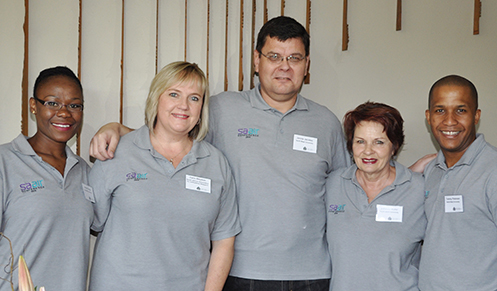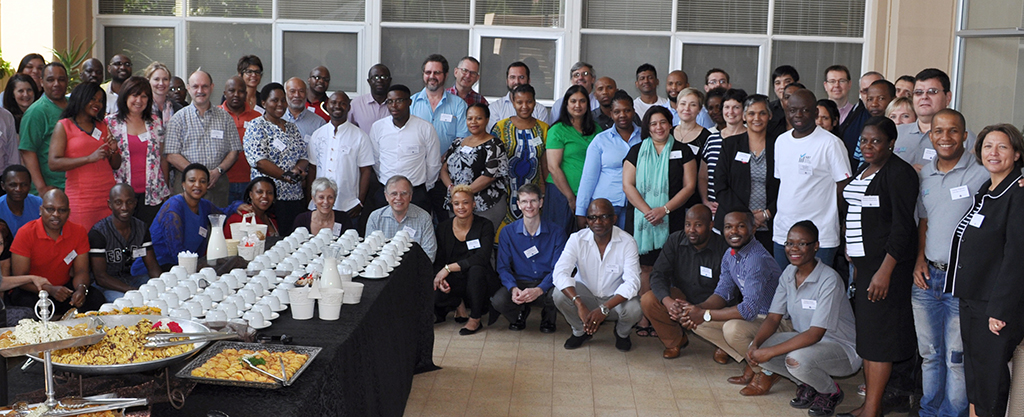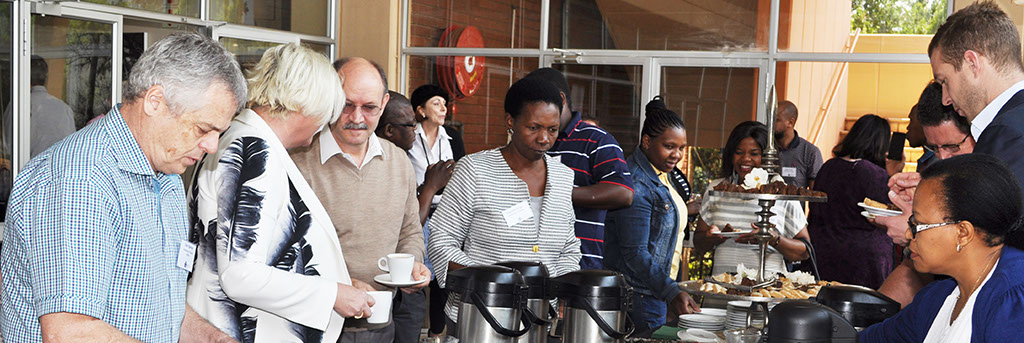nstitutional researchers reflect on a turbulent year
I
Universities need accurate, reliable facts and figures if they are to make sound decisions about everything – from the kind of support students need, to possible new academic programmes to meet labour market demands.
These facts and figures come from their institutional research departments, which gather each year to share the latest trends in their own field and in the broader higher education sector.
The NWU had the honour of hosting the 23rd annual Southern African Association for Institutional Research (SAAIR) conference in October last year.
The event represented four days of institutional research bliss for all who attended the conference, which coincided with a Southern African Higher Education Learning Analytics (SAHELA) pre-conference workshop in Potchefstroom.
This important gathering offered staff of all Southern African higher education institutions the opportunity to not only share knowledge and experiences, but also reflect on a tumultuous year and to discuss the way forward.
SCROLL DOWN

These colleagues are part of the Quality Office team who hosted what delegates described as an informative and wonderful SAAIR conference. They are Audrey Vanya, temporary student assistant, Carin Strydom of SAAIR, Dr Jannie Jacobsz, director of the Quality Office and conference chair, Johanna Müller, quality manager for support services, and Tommy Pietersen, senior administrative officer.
%20b.jpg?crc=4037765491)
Carin Strydom of SAAIR, Antoinette Vermeulen, NWU quality manager for academic programmes, and Johanna Muller, quality manager for support services, take a well-deserved break during the SAAIR conference.
mustfall campaigns debated
#


More than 130 delegates from all over South Africa, Botswana and Namibia attended the SAAIR conference and SAHELA workshop.
More than 130 delegates from all over South Africa, Botswana and Namibia attended the SAAIR conference and SAHELA workshop.
<
>
The theme centred on the very topical #mustfall campaigns, whose impact was felt in all spheres of the higher education landscape. Delegates from all over Southern Africa had the chance to engage on a number of topics, including contexts and practices of institutional research, sustainability of institutions and the role of institutional research in promoting better understanding, support and quality.
Delegates could listen to renowned speakers and specialists sharing their thoughts on the state of higher education in the wake of student protests that often turned violent and disruptive. They could also participate in panel discussions and attend various peer-reviewed presentation sessions.
“If we look at the #FeesMusFall movement, government created expectations many years ago that it would provide free education. We have seen that year on year government’s subsidies decrease, putting more financial stress on students. That is why we are in the current situation. Students are justifiably angry. The conference gave us all food for thought and offered a platform for professionals to share their experiences,” says Dr Jannie Jacobsz, director of the NWU’s Quality Office.
op speakers have their say
T
Prof Dan Kgwadi, vice-chancellor, gave his perspectives on the #EverythingMustFall uprisings, while Prof Adam Habib, vice-chancellor of Wits University, spoke about the role of universities in a changing world. Australian guest speaker Prof Linda Brown shared her insights on delivering quality higher education and graduate employability amid constant change within cumbersome regulatory, policy and funding frameworks. She is the CEO of Laureate Australia, CEO of Think Education and president of Torrens University in Australia.
Although the conference was primarily about sharing research and knowledge and engaging to promote institutional research, delegates also had the opportunity to experience the NWU’s hospitality and to socialise. Networking events held on different nights included an evening cocktail at the Faculty of Engineering building, where a presentation was also made on the world-renowned Vredefort Dome, a gala dinner and a bus tour.
Follow this link to see some of the presentations:
http://www.saair-web.co.za/news/resource-centre/2016-conference-presentations/
%20b.jpg?crc=221501928)


Vice-chancellors Prof Adam Habib and Prof Dan Kgwadi were two of the renowned keynote speakers during the conference.
Prof Linda Brown of Australia gave institutional research professionals advice on how to survive and thrive amid tension and uncertainty.
Nicolene Murdoch, outgoing chairperson of SAAIR, chaired SAAIR’s annual general meeting during which a new executive committee for 2017 was appointed.
<
>

